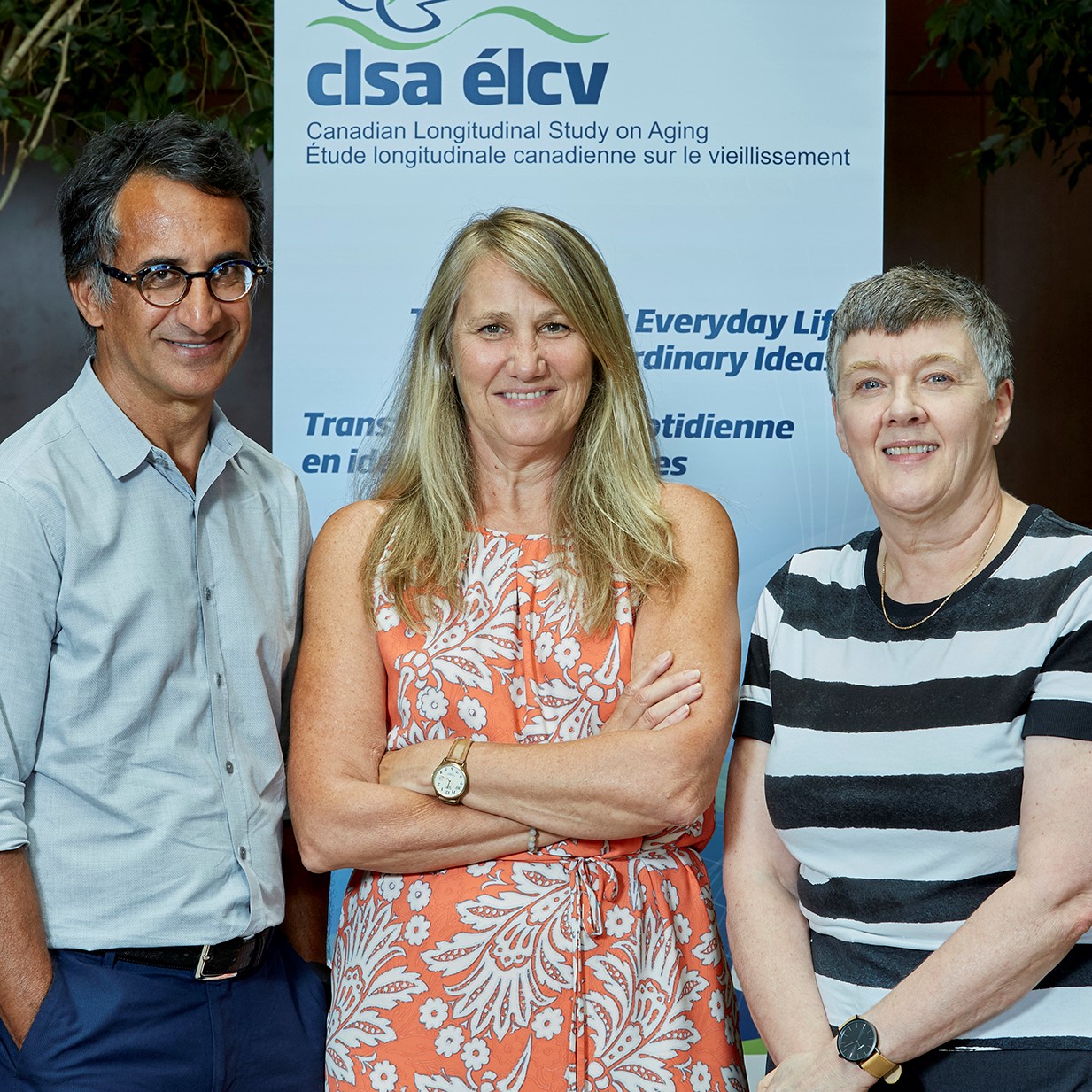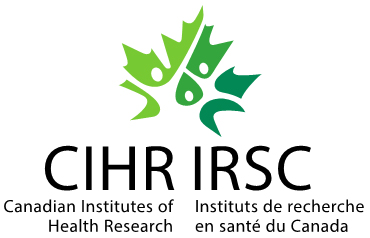Enabling research on health and aging
The CLSA research platform has been envisioned as infrastructure to enable cutting-edge, interdisciplinary approaches to population-based research and empower evidence-based decision-making.
The aim of the CLSA is to find ways to help us live long and live well, and understand why some people age in a healthy fashion while others do not. What is learned from the CLSA will help improve the health and well-being of people in Canada and around the world.

Snapshot of the CLSA research platform
The Canadian Longitudinal Study on Aging (CLSA) is a large, national research platform on health and aging allowing researchers to answer critical questions on the biological, medical, psychological, social, lifestyle and economic aspects of aging, disability and disease.

600+ approved research projects
The CLSA has provided data to 600+ approved research teams in Canada, the United States, Australia and Europe.

300+ scientific publications
Read our latest peer-reviewed articles under Publications.

250+ training opportunities
Facilitating training opportunities for the next generation of researchers is fundamental to the long-term success of the CLSA.

1,500+ CLSA news stories
Findings from the CLSA have captured the attention of renowned media such as The New York Times, The Washington Post, and The Globe and Mail.
Our Impact
Living longer, living better.
Findings from the CLSA research platform will help to shape the future of aging in Canada.

Improving health services
Contributing to the identification of ways to prevent disease and improve health services.

Understanding the impact of non-medical factors
Developing better understanding of the impact of non-medical factors, such as economic prosperity and social changes, on people as they age.

Informing government programs and services
Answering questions that are relevant to decision-makers to improve health policy and inform government programs and services.

Generating new knowledge
Generating new knowledge on many interrelated biological, clinical, psychosocial and societal factors that influence disease, health and well-being.

Training the future generations of researchers
Developing Canadian research capacity and training future generations of researchers who will use the CLSA data and infrastructure to explore previously unimagined areas of research on aging.
Data Availability
The cohort of 51,338 participants, aged 45 to 85 years at recruitment, is comprised of two complementary cohorts that may be studied separately or together.
The CLSA collects comprehensive questionnaire data, physical assessment data, and biological samples that support a wide variety of health- and aging-related research questions.
Longitudinal data are now available for access.

Our Team
The CLSA has more than 250 researchers, staff members, and trainees across Canada who work together to ensure the ongoing success of the platform as a tool for advancing aging research in Canada and internationally.

Enabling Units
The CLSA enabling units play an important role in the storage and management of collected data.
- National Coordinating Centre
- Biorepository and Bioanalysis Centre
- Data Curation Centre
- Data Collection Sites
- Computer-Assisted Telephone Interview Sites

Funders and Partners
Collaborative partnerships help to enrich the CLSA research platform, fostering its development into a dynamic, comprehensive, and invaluable resource for research on health and aging.






Governance
The CLSA governance and management structure supports the implementation, operation, functionality and sustainability of the CLSA research platform. It consists of two councils and six committees that report to the CLSA Executive Committee.

Contact Us
Question about the CLSA? Get in touch with us. You can update your details, find your Data Collection Site, or locate the contact information for the CLSA Enabling Units.